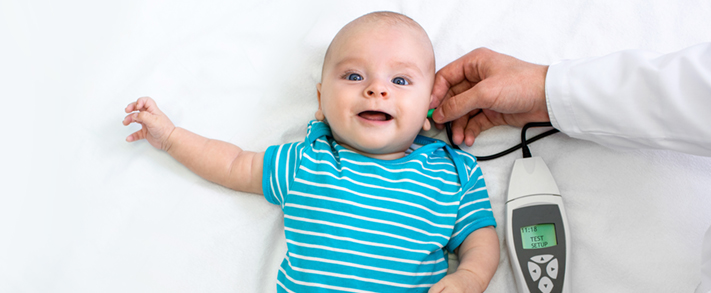
In the UK, over 800 babies are born every year with a hearing loss. A baby with a hearing loss is at risk of becoming a socially excluded child. However, if the hearing loss is identified early, the disadvantages faced by your baby can be abated and they can go on to have a normal childhood.
Hearing loss and language development
The late identification of a hearing loss in your baby can delay the establishment of communication with your child, impacting on their rate of language acquisition and furthermore, effect their social and educational development.
The first six months of a baby’s life is a critical period for learning communication.
There is no reason why a baby with a hearing loss cannot develop language at the same rate as fully hearing babies, if the loss of hearing is identified in time to implement a support programme.
Will my baby have a hearing loss?
A hearing loss may be due to an inherited condition or caused by an infection during the pregnancy. A hearing loss may be acquired in infancy due to your baby contracting meningitis or as a consequence of a head injury. A temporary hearing loss may be caused by the condition glue ear, or another obstruction within the ear.
Risk factors can be taken into account for some babies having a hearing loss in one or both ears. A risk factor could be exposure to particular drugs in the womb. However, 30% to 40% of babies with a hearing loss are not associated with a risk factor.
How the ear works
Sound waves enter the ear as a vibration. The vibrations are funnelled into the passage of the outer ear canal until they hit the ear drum. This moves the ossicles which pass the vibration to the oval window, a thin layer of tissue separating the middle part from the inner part of the ear. The movement sets off a motion in the fluid of the cochlea. The cochlea converts the vibration into an electrical signal which passes along nerves into the brain. The brain then interprets the electrical signal as a sound.
